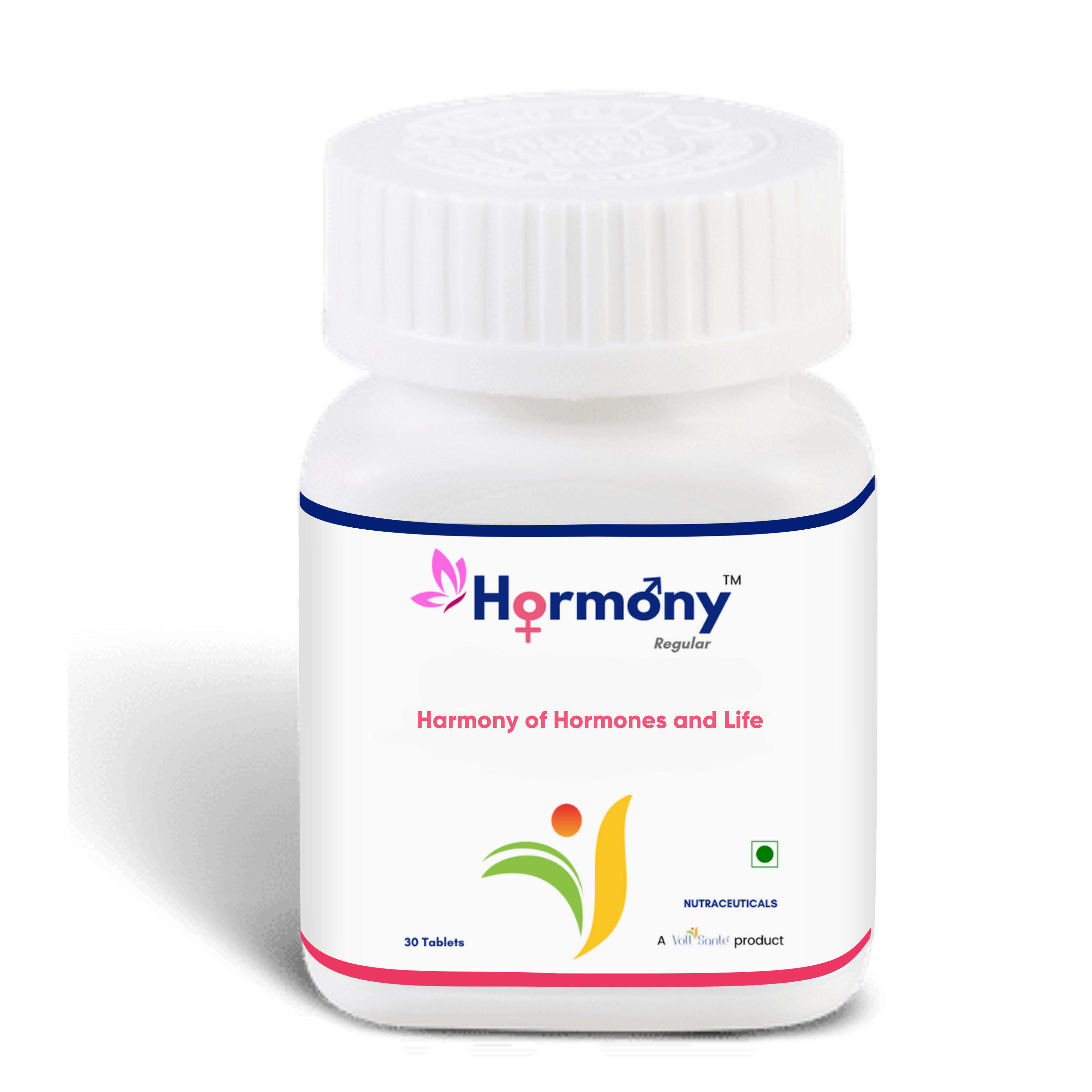Shopping Cart
Cart Is Empty Continue Shopping
BLOGS
Blog date : 2023-08-25
Time : 18:44

The Crucial Role of Nutrition in Fertility: Nourishing the Path to Parenthood
The Crucial Role of Nutrition in Fertility: Nourishing the Path to Parenthood
The journey to parenthood is a profound and transformative one, marked by hope, anticipation, and a desire to nurture a new life. Amidst the excitement, many factors come into play, and one of the most vital, yet often overlooked, aspects is the role of nutrition in fertility. Beyond the joy of conceiving a child lies a complex interplay of bodily functions that require the right nourishment to function optimally. A well-balanced and nutrient-rich diet can significantly impact both male and female fertility, potentially increasing the chances of conception and a healthy pregnancy. In this comprehensive article, we will delve deep into the intricate connection between nutrition and fertility, shedding light on how making informed dietary choices can pave the way for a successful journey into parenthood.
The Intricate Link between Nutrition and Fertility
The age-old adage "you are what you eat" holds a profound truth, particularly when it comes to matters of fertility. Nutritional choices play a crucial role in shaping reproductive health by influencing hormonal balance, menstrual regularity, and sperm quality. The body's ability to conceive and sustain a pregnancy is deeply intertwined with the availability of essential nutrients that fuel these intricate processes. Inadequate nutrition can disrupt hormonal harmony, leading to irregular menstrual cycles, poor egg quality, and diminished sperm count, all of which can impact fertility.
Essential Nutrients for Fertility Enhancement
Folic Acid: A Foundation for Reproductive Health
Folic acid, a B-vitamin known for its significance in prenatal care, is equally crucial for women seeking to conceive. It plays a pivotal role in preventing neural tube defects in the early stages of pregnancy. However, its influence extends beyond pregnancy preparation; folic acid supports overall reproductive wellness by aiding in cell division and DNA synthesis.
Omega-3 Fatty Acids: Nurturing Hormonal Balance
Omega-3 fatty acids, often associated with heart health, also have a significant impact on fertility. These essential fats play a role in regulating hormones and promoting healthy cervical mucus production. Incorporating sources like fatty fish, flaxseeds, and walnuts can contribute to hormonal equilibrium.
Antioxidants: Defending Reproductive Cells
The body's reproductive cells are particularly vulnerable to oxidative stress, which can lead to DNA damage and impaired fertility. Antioxidants, abundantly found in fruits and vegetables, act as defenders, neutralizing harmful free radicals and preserving the integrity of reproductive cells.
Vitamin D: Modulating Reproductive Hormones
Vitamin D, often dubbed the "sunshine vitamin," plays a multifaceted role in reproductive health. Beyond its involvement in bone health, vitamin D influences reproductive hormones and has been linked to fertility. Ensuring adequate vitamin D levels through sunlight exposure and dietary sources can positively impact reproductive function.
Zinc: Vital for Reproductive Function
Zinc, a trace mineral, holds immense importance for both male and female fertility. In males, zinc is a key component of sperm production and quality, while in females, it aids in regulating the menstrual cycle and supporting egg maturation.
The Mediterranean Diet: A Fertility-Friendly Approach
Amidst the multitude of dietary options, the Mediterranean diet shines as a fertility-friendly choice. Rich in fruits, vegetables, whole grains, lean proteins, and healthy fats, this diet offers a comprehensive array of nutrients that support reproductive health. Olive oil, a staple of the Mediterranean diet, contains monounsaturated fats that have been associated with improved fertility.
Hydration: Often Overlooked, Crucially Important
Amidst the focus on macronutrients and micronutrients, the significance of hydration for fertility often goes unnoticed. Staying adequately hydrated is essential for maintaining optimal bodily functions, including hormone production, circulation, and cellular processes critical for reproduction.
Balancing Body Weight: The Fertility Connection
Achieving and maintaining a healthy body weight is a cornerstone of fertility. Both underweight and overweight conditions can disrupt hormonal balance and menstrual regularity. Excess body fat can lead to overproduction of certain hormones, potentially disrupting ovulation, while being underweight can result in hormonal imbalances that impede reproductive processes.
Lifestyle Factors: Stress, Exercise, and Sleep
Stress Management: Impact on Reproductive Hormones
Chronic stress can wreak havoc on reproductive health by altering hormone levels and menstrual cycles. The body's stress response system, the hypothalamic-pituitary-adrenal (HPA) axis, interacts closely with the reproductive system. Stress-reduction techniques, such as meditation, deep breathing, and yoga, can positively influence hormonal balance.
Physical Activity: Striking the Fertility Balance
Regular physical activity plays a vital role in promoting fertility by enhancing circulation, maintaining a healthy weight, and reducing the risk of chronic conditions. However, it's important to strike a balance, as excessive exercise can lead to irregular menstrual cycles and decreased fertility.
Prioritizing Sleep: Aiding Reproductive Wellness
Quality sleep is a non-negotiable factor in reproductive health. Sleep is essential for hormonal regulation, and disruptions in sleep patterns can impact menstrual regularity and fertility. Aim for 7-9 hours of restful sleep each night to support overall reproductive wellness.
The Role of Gut Health in Fertility
Recent research has unveiled a fascinating connection between gut health and fertility. The gut microbiome, a complex community of microorganisms residing in the digestive tract, plays a role in nutrient absorption, immune function, and hormonal regulation. A balanced gut microbiome positively influences reproductive health by optimizing nutrient utilization and aiding in the elimination of toxins.
Avoiding Harmful Substances: Tobacco, Alcohol, and Caffeine
The impact of harmful substances on fertility cannot be overstated. Tobacco, alcohol, and excessive caffeine consumption have all been linked to decreased fertility in both men and women. Smoking has been shown to reduce sperm count and motility, while alcohol consumption can disrupt hormonal balance. Caffeine, although generally safe in moderation, should be consumed mindfully.
Seeking Professional Guidance: The Role of a Dietitian
Navigating the complex terrain of fertility-boosting nutrition can be overwhelming, but you don't have to go it alone. Consulting a registered dietitian with expertise in fertility can provide personalized guidance tailored to your unique needs. A dietitian can help create a comprehensive dietary plan that aligns with your goals, taking into consideration any underlying health conditions or dietary restrictions.
Conclusion
As you embark on the journey to parenthood, remember that every meal you consume can contribute to your fertility story. Nutrition is a powerful tool that can shape the course of conception and pregnancy. By prioritizing a well-rounded diet rich in essential nutrients, you are not only nurturing your own well-being but also nurturing the potential for new life.
Frequently Asked Questions (FAQs)
1.Can certain foods directly enhance fertility?
While no single food can guarantee fertility, a balanced diet can create an environment conducive to reproductive health."
2.Do dietary supplements play a role in fertility enhancement?
Supplements can complement a balanced diet, but their use should be guided by healthcare.
Latest Blogs
- Unlocking Hormonal Harmony: Your Ultimate Guide to Managing PCOS/PCOD Naturally
- Mind Matters: Effective Mental Health Strategies for Coping With PCOS/PCOD and Thriving
- The Crucial Role of Nutrition in Fertility: Nourishing the Path to Parenthood
- Importance of Nutrition in Fertility: How "Hormony" Can Make a Difference
- Post-Pandemic Fitness: Adapting Your Routine for Changing Times
- Age-Defying Wellness: Unlocking the Secrets of Youthful Radiance
- Tech Detox: Balancing Screen Time for Mental Wellness and Digital Harmony
- Protein's Role in Weight Management: The Science Behind Feeling Full
- From Hashtags to Health: Riding High on the Vegan Calcium Trend
- The Bone Boosting Dream Team: How Calcium, Vitamin D, Magnesium, and Vitamin K2-7 Work Together
- Strong Bones, Green Choices: Why Vegan Calcium Supplements Are a Must-Try





